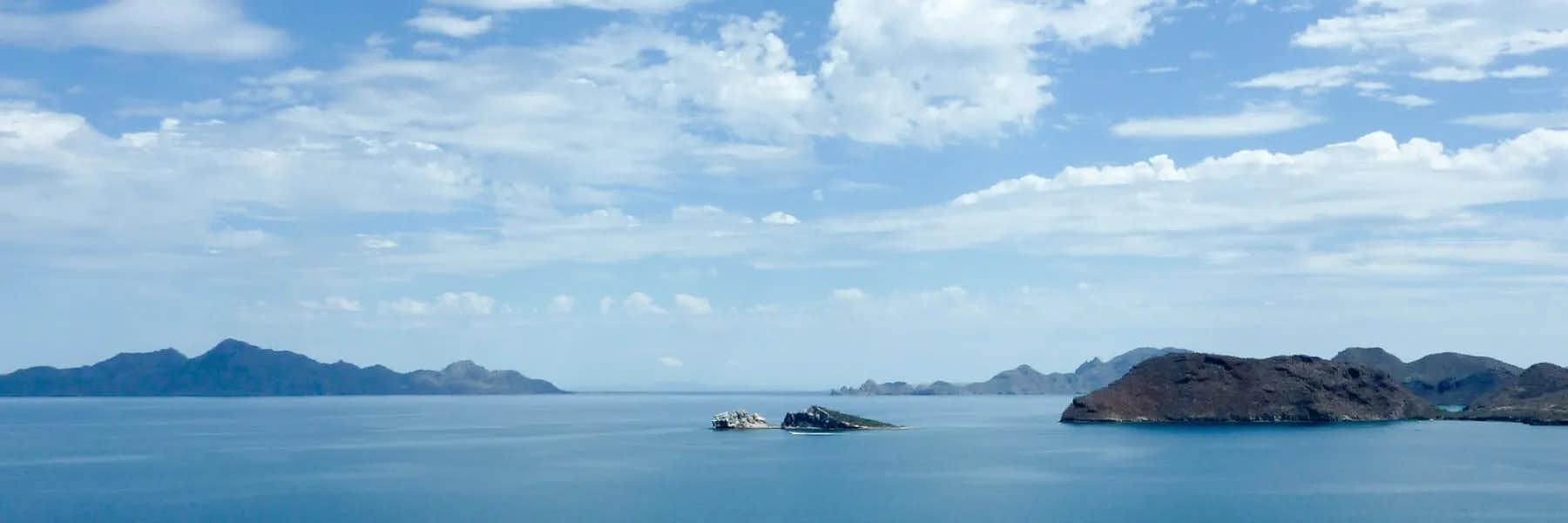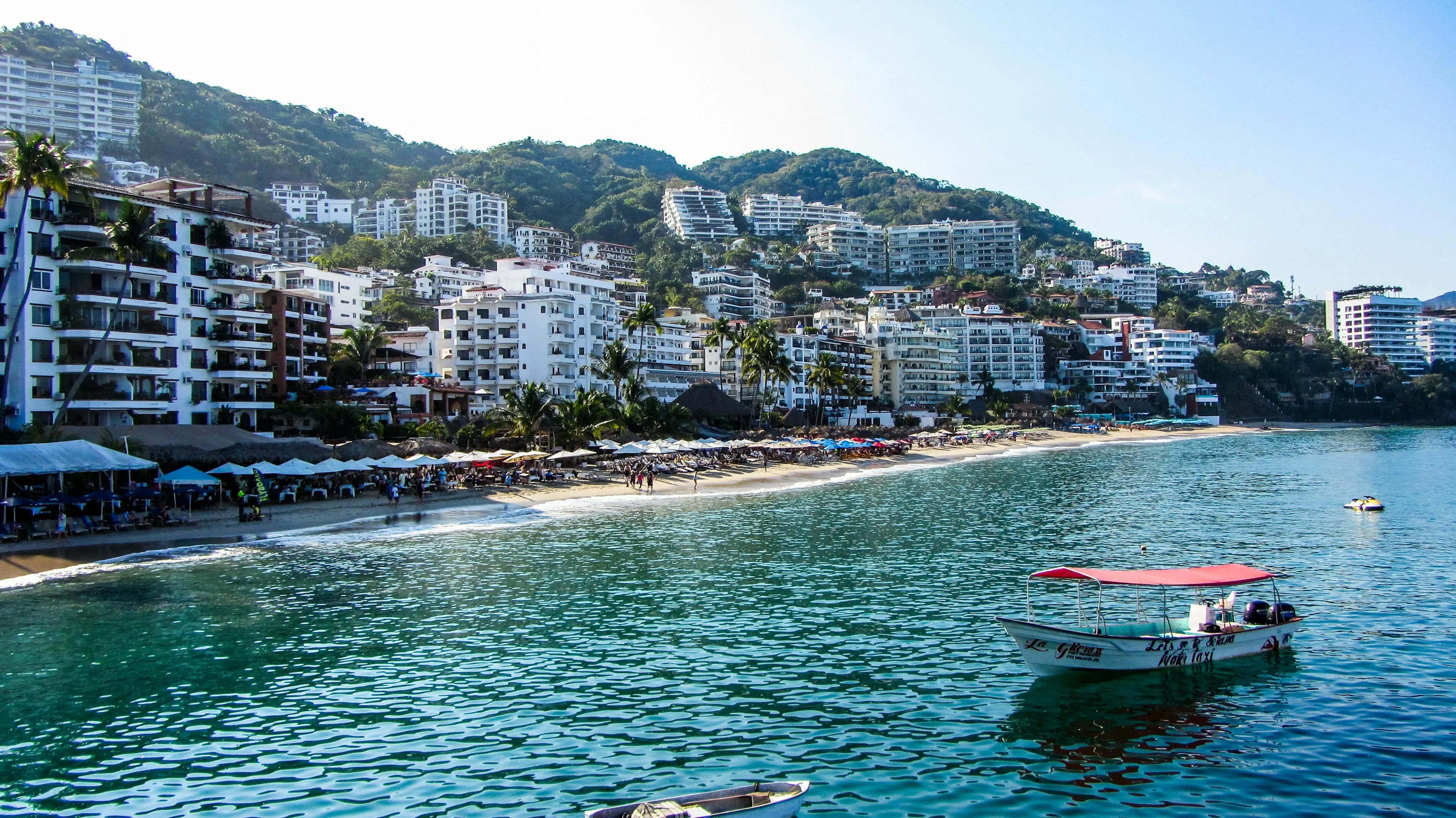Reports are that approximately one million Americans live in Mexico. While it’s hard to verify that number, it’s not hard to imagine that it’s true. Some are working, of course, for U.S., Mexican, or other foreign corporations. You’ll find them in cities like Mexico City, Queretaro, and Monterrey.
And some live in Mexico just part-time…spending winter months in vacation homes where the weather is always warm and the cervezas are always cold.
Many Americans in Mexico, however, have moved there to enjoy their retirement years. They live in Mexico full-time and enjoy better weather, a more relaxed lifestyle, and a host of other benefits—including affordable top-quality health care and a much lower overall cost of living.
Get Your Free Mexico Report Today!
Get Your Free Mexico Report Today!
Learn more about Mexico and other countries in our daily postcard e-letter. Simply enter your email address below and we’ll send you a free special report – Mexico: The Perfect Close-to-Home Retirement Haven.
By submitting your email address, you will receive a free subscription to IL Postcards and special offers from International Living and our affiliates. You can unsubscribe at any time, and we encourage you to read more about our Privacy Policy.
The most popular retirement destinations for Americans in Mexico
First, let’s get something straight. People from around the globe are retiring to Mexico…and not just folks from the U.S. It just happens to be a close destination for those from the U.S. and Canada. From Canada or the U.S. you can easily drive to Mexico.
Several locations in Mexico stand out, of course, as retirement destinations for foreign expats. Some of the most popular are:
Lake Chapala: In the little towns along the north shore of Mexico’s largest freshwater lake, you’ll find the largest community of U.S. retirees outside the U.S. This lakeside area in the country’s central highlands, just 45 minutes south of Guadalajara, is already home to about 10,000 full-time expatriates from the U.S. and Canada (and nearly twice that many during winter months). The towns on the lake—particularly those along the north shore—are comfortable enclaves with cobblestone streets, Spanish-colonial architecture, and some of the world’s best weather. The average year-round temperature is a spring-like 68° F, and a tight-knit expatriate community provides all manner of comfortable amenities and support to retirees—from garden restaurants, to dog-training services, to bridge clubs and yoga classes.
San Miguel de Allende: With its high-towered church and its cobbled streets, tidy shops selling carefully embroidered linens and hand-painted plates homes that belong in the pages of Architectural Digest, and lush courtyard gardens in bloom year-round, this city is like something out of a children’s fairytale book. San Miguel has other benefits, too—proximity to the U.S., an excellent climate, an affordable cost of living, an established expatriate community, local golf courses, and the kind of shopping (for everything from food to office supplies) that you’re used to back home.
Puerto Vallarta: When Liz Taylor and Richard Burton famously came here in the early 1960s, Puerto Vallarta wasn’t much more than a sleepy fishing village. A place where misty tropical mountains wrap arms around the crescent moon-shaped Banderas Bay.
Today, it is one of the world’s top tourist destinations, with an international airport, pro-tourney golf courses, designer shopping, world-class restaurants and beautiful people from around the world. Vallarta’s expat community is vibrant, too…you’ll find many activities to keep you busy, from outdoor activities to art galleries and charitable events to volunteer options and more.
Baja California Sur. The southern half of the long Baja Peninsula is a nature wonderland: a dry, sparsely-populated desert terrain blessed with two spectacular coasts: the Pacific to the west and the fertile Sea of Cortez, which separates it from mainland Mexico, to the east. Three easy-going destinations favored by expats are Todos Santos, Loreto, and La Paz. Artsy Todos Santos, on the Pacific side of the Peninsula, has a well-established little expat community. Loreto, on the Sea of Cortez, is the gateway to the UNESCO-designated and –protected marine park just offshore. With world-class kayaking, snorkeling, diving, fishing, and dolphin- and whale-watching available, Loreto attracts nature- and sports-lovers. Laid-back La Paz, four hours south of Loreto on the Sea of Cortez, is the capital of Baja California Sur and a low-key favorite that feels much like Southern California 60 or 70 years ago.
Mazatlan: One of Mexico’s oldest and most famous vacation and retirement destinations, Mazatlan is built on the reputation of the world-class deep-sea fishing to be found along the coast, and the 16 miles of beaches running north from town. Other fancier Mexican beach resorts may have stolen a bit of its thunder, but make no mistake...Mazatlan still has what it takes to charm the visitor’s heart and pique the interest of the potential part- or full-time resident. It’s a wonderful blend of resort beach town with a distinctly Mexican flavor...something the mega resorts have largely lost. And reasonably priced real estate is still available.
Huatulco: A resort community planned by Fonatur, the Mexican government’s national trust fund for tourism development, Huatulco is spacious, green, and well-maintained. You’ll find fabulous homes tucked away on high cliffs overlooking the picture-perfect bays. (There are nine gorgeous secluded bays to choose from here.) And even though Huatulco is a resort destination, it doesn’t feel like one. It’s quiet, laid-back and waiting to be discovered...the “Cinderella” of Mexico’s Pacific resort towns.
Puerto Escondido: Puerto Escondido is a little fishing village and a world-class surf zone—a longstanding favorite with surfers worldwide. The downtown area is small, colorful, and crowded, and the front beach is like a picture postcard, truly gorgeous. This is still a fishing village at heart, and its front beach is one of the cleanest and prettiest we’ve seen on any coast. You can still buy a whole, fresh tuna or dorado from fishermen’s children on the main street if you get there before 10 a.m. But the little town is growing, so get there quickly while you can still find the bargains.
Merida: Sidewalk cafés, tree-lined streets, and fresh paint...Yucatan’s best-kept secret is cosmopolitan Mérida. Just a half-hour from the Gulf-coast beaches, this city of 970,000 is a center of commerce and home to universities, hospitals, friendly locals, and beautiful colonial homes that would cost you twice as much in central Mexico’s discovered enclaves. The expatriate community maintains a well-equipped English-language library and hosts monthly get-togethers. The kinds of goods and services you’d expect to find in a comparably-sized city back home are available here, too--from Office Depot to Sam’s Club, Costco, Sears, all the familiar fast-food chains, and several high-end shopping malls.
The Riviera Maya: The stretch of Caribbean coastline that runs from Cancún to Tulum is known as the Riviera Maya. Arguably, this area is home to some of the world’s most beautiful beaches. There are several intriguing towns along this coast, including Puerto Morelos, Playa del Carmen, Akumal, and Tulum. Playa del Carmen is one of the fastest-growing cities in Mexico. Cruise ships dock here regularly and the beachfront is wall-to-wall hotels and restaurants. Fifth Avenue is just a block or so off the beach. This pedestrian walkway is flanked by sidewalk restaurants and small boutiques selling a myriad of exotic items. This is a fun place with a relaxed, bohemian ambience. If Playa is too “busy” for you, check out laid-back Tulum, an up-and-coming destination that attracts fashionistas and movers-and-shakers while still paying homage to its backpacker roots. And Tulum’s beach regularly figures among the 10 most beautiful beaches in the world.
Which one is for you?
There are many other locations in Mexico, of course, where you will find U.S., Canadian, and other foreign residents--from small towns like Pozos de Mineral in the central highlands to large cities like Cuernavaca, near Mexico City, and the Pacific Coast resorts of Manzanillo and Ixtapa/Zihuatanejo.
So be assured…no matter what kind of lifestyle or climate you are looking for, you’ll find it in Mexico.
Get Your Free Mexico Report Today!
Get Your Free Mexico Report Today!
Learn more about Mexico and other countries in our daily postcard e-letter. Simply enter your email address below and we’ll send you a free special report – Mexico: The Perfect Close-to-Home Retirement Haven.
By submitting your email address, you will receive a free subscription to IL Postcards and special offers from International Living and our affiliates. You can unsubscribe at any time, and we encourage you to read more about our Privacy Policy.














